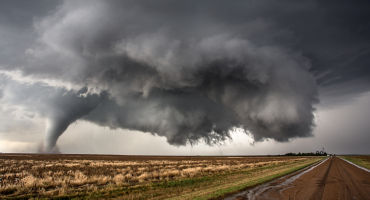Wellington Management and CalPERS launch innovative framework to help executive teams better evaluate physical risks of climate change — new P-ROCC (physical risks of climate change) framework aims to facilitate more informed investment decisions through enhanced corporate disclosures
Boston, MA, September 9, 2019 – Wellington Management Company LLP (“Wellington”), the California Public Employees’ Retirement System (“CalPERS”) today announced the launch of a new framework designed to help companies and their executive teams assess and disclose the potential effects of the physical risks of climate change (P-ROCC) on their business. This new P-ROCC framework seeks to improve how companies disclose their physical vulnerabilities, and thereby help asset owners and investment managers better evaluate the ability of the companies they invest in to adapt to or mitigate such risks. For the purposes of the P-ROCC framework, Wellington and CalPERS define physical risks as inclusive of but not limited to extreme heat, drought, wildfires, hurricanes, flooding, and water access.
The development of this framework is the direct result of the collaborative initiative announced in September 2018, which outlined Wellington, CalPERS, and Woods Hole Research Center’s intentions to generate research aimed at connecting the impact of climate change to capital markets. This framework is meant to aid companies in their disclosure practices, whether those practices be voluntary compliance (like in the case of the Task Force on Climate-related Financial Disclosures-TCFD) or, in a growing number of markets, globally required compliance. In this way, the framework can serve as a helpful guide for management teams to disclose how they identify, measure, and manage their exposures to the physical risks of climate change. An improved understanding and disclosure of physical climate risks can help companies:
- Better relay information to capital providers, investors, markets, and regulators;
- Meet new disclosure requirements more effectively;
- Assure investors that they take these risks seriously — absent disclosure, market participants may presume that the company is unprepared for climate-related risks, affecting stock price volatility, cost of capital, confidence in management, and potential litigation;
- Recognize and adapt to the effects of climate change on operations; and
- Form a baseline for comparing and testing their assumptions against industry counterparts and enable them to assess and build competitive advantage.
Chris J. Goolgasian, Director of Climate Research at Wellington Management, said, “Based on our research, many companies overlook and/or underreport climate-related physical risks that can be material and important to disclose to stakeholders. We believe the P-ROCC framework may help executive teams with their strategic planning and communication around potential climate effects on their business lines.”



















